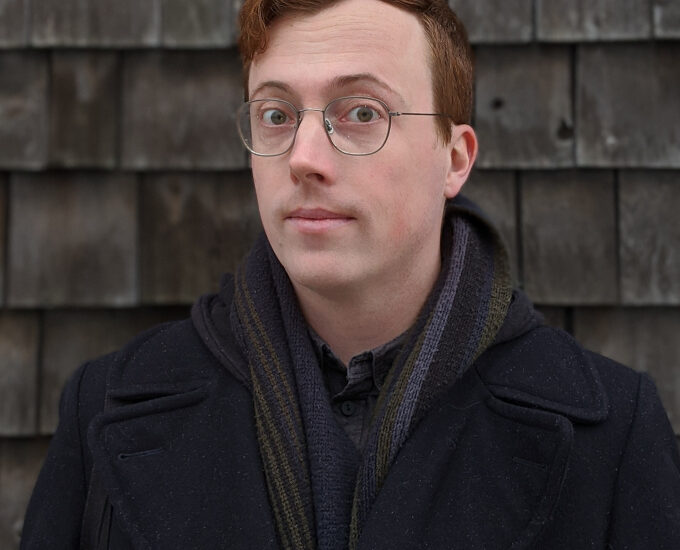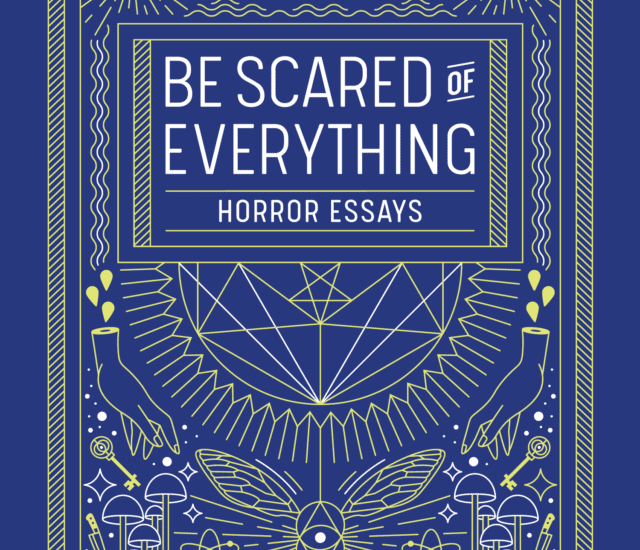
KJIPUKTUK (Halifax) – As the Publicity Coordinator for Invisible Publishing I am deeply familiar with the essays in Peter Counter’s collection, Be Scared of Everything. Counter is a resident of Halifax who lives with PTSD and uses horror entertainment as a therapeutic tool. The essays consist of analyses of horror entertainment strung together by a personal narrative about Peter’s experience of witnessing an act of gun violence against his father.
To gain more insight into consuming horror media as a coping mechanism, I asked Peter for some viewing suggestions. I wondered if I’d experience some catharsis while self-isolating during the Covid-19 pandemic. He replied with a list of films and warnings of gore.
I did not experience catharsis while watching Halloween (2018), just a renewed dislike of masks. However, during Hereditary, I confronted a profound moment of grief, and had a similar experience while watching The Haunting of Hill House, based on the gothic novel by Shirley Jackson. Soon I was urging people to give His House a chance, a thriller about a South Sudanese couple who, having escaped to England, move into a house that won’t allow them peace.
Once considering myself someone who doesn’t like scary things, now I wondered if I hadn’t been denying that scary things exist.
Below is an adapted conversation with Peter Counter in which we discuss the usefulness of horror media and its role in validating feelings of chaos.
Julie Wilson: You’ve said, there’s nothing more emotionally honest than horror. How does horror media function?
Peter Counter: Horror media thrives on the border between the human experience and the unknowable. Horror grows from the discomfort of the human mind confronting the idea that the order we impose on our world is simply a coping mechanism to deal with the true chaotic state of the universe. It’s humbling. When order fails to be reinstated at the end of a narrative, rather than a sense of closure, horror encourages the audience to find acceptance. It removes our human agency. It decentralizes us.
JW: My sense is that people feel that consuming horror media creates a traumatized state, or prolongs one.
PC: That’s true. As you know, I was traumatized by an incident of gun violence when I was a teenager, and so I kind of get my hackles up when people say that a piece of entertainment is too traumatizing. It’s inadvertently erasing. In most cases people are using the language of trauma to avoid consensual discomfort. That said, I try not to pressure people into watching horror. But I like to note that the horror label acts as a content warning, which makes triggering material easier to handle.
The emotional value of horror for me is representational. The concept of accepting the negative state of the world rather than demanding closure feels emotionally true to my life. Horror is helpful in processing the post-traumatic experience precisely because it doesn’t promise order. It presents a narrative that accepts bad things happen to good people for no reason, and that unresolvable trauma still has value. Unresolved people still have value.
JW: We’re living through a pandemic. Is now the time to consume horror media?
PC: Now is absolutely the time. Collectively, we have been thrust into a sort of existential freefall. There is a physical sensation to being scared by horror media that emulates real anxiety pain. It’s like flexing and releasing a spasmed muscle. Right now, in the pandemic, there is a very upsetting trend of people trying to repress the abject terror we’re all feeling. Especially in our jobs the window for forgiveness is closed in terms of using the pandemic as an excuse for exhaustion or disorientation. I’m seeking out the most horrific media just to have a sympathetic reflection of how I feel and to ease the knots in my diaphragm.
JW: Are people missing opportunities that might otherwise be found in horror media?
PC: The human experience is a full spectrum phenomenon, and there are certain flavours people are robbing themselves of if they deny the negative stuff. And that’s fair enough when it comes to actual experience, but horror media is entertainment. Horror’s gift is the opportunity to consensually go to a dark place without closure, and then walk away and sleep in a cozy bed.

With a special thanks to our generous donors who make publication of the Nova Scotia Advocate possible.
Subscribe to the Nova Scotia Advocate weekly digest and never miss an article again. It’s free!



